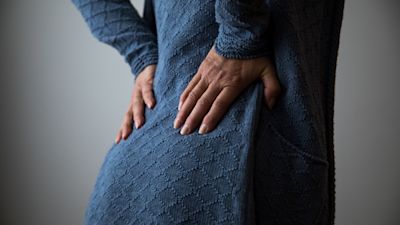Injectable 'air-mattress' could help people with severe back pain

Cambridge scientists have played a leading role in developing and testing the vaccine for Covid-19, now they might have created a 'vaccination for back pain'
A team of engineers and clinicians has developed an ultra-thin, inflatable shape-changing spinal implant that can be used to treat the most severe forms of pain without the need for invasive surgery.
Developed by researchers at the University of Cambridge, the device uses a combination of soft robotic fabrication techniques, ultra-thin electronics and microfluidics.
Once in place, the device is inflated with water or air so it unrolls like a tiny air mattress, covering a large section of the spinal cord, researchers say.
It disrupts pain signals by sending small electrical currents to the spinal cord through ultra-thin electrodes connected to a pulse generator.
Dr Damiano Barone, from Cambridge's Department of Clinical Neurosciences and one of the paper's senior authors, said:
"Spinal cord stimulation (SCS) is a treatment of last resort, for those whose pain has become so severe that it prevents them from carrying out everyday activities.
Early tests of the device suggest it could be an effective treatment for many forms of severe pain - including leg and back pain - which are not remedied by painkillers, researchers say.
It could also be adapted into a potential treatment for paralysis or Parkinson's disease, but extensive tests and clinical trials will be required before the device can be used on patients.
Although other types of SCS devices are currently used to treat severe pain, the most effective are bulky and require invasive surgery. Current keyhole devices are far less effective at treating pain.
Experts suggest that by combining the clinical effectiveness of the surgical devices and the ease of implantation of the keyhole devices, the new implant could be an effective, long-term solution to intractable pain, which affects millions worldwide. In the UK, back pain is among the leading causes of disability.
Cambridge drug trial rolled out across the UK to help protect kidney patients from coronavirus
World-first Covid-19 vaccine booster study begins in Cambridge
Dr Christopher Proctor, from Cambridge's Department of Engineering and the paper's other senior author, said:
Co-first author Ben Woodington, also from the Department of Engineering, explained: "In order to end up with something that can be implanted with a needle, we needed to make the device as thin as possible."
Researchers used a combination of manufacturing techniques to build their device - flexible electronics used in the semiconductor industry, tiny microfluidic channels used in drug delivery, and shape-changing materials used in soft robotics. Their finished device is just 60 microns thick - or around 0.06mm.
Earlier versions were so thin that they were invisible to X-rays, which the surgeon would need to use to confirm correct placement before inflation. The researchers validated their device in laboratory tests and on a human cadaver model.
They are currently working with a manufacturing partner to further develop and scale-up their device and are hoping to begin tests in patients within two to three years. The research is reported in the journal Science Advances.